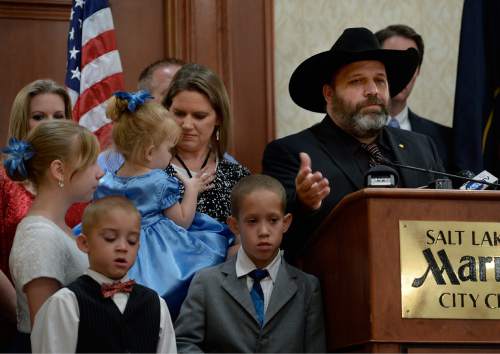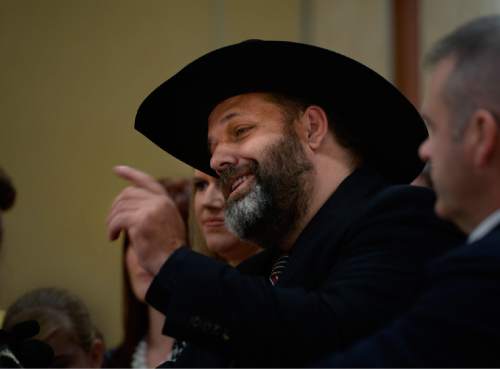This is an archived article that was published on sltrib.com in 2015, and information in the article may be outdated. It is provided only for personal research purposes and may not be reprinted.
A federal grand jury has handed up a new indictment against Gabriel Joseph, an associate of Rick Koerber who was once charged with allegedly operating a massive real estate investment fraud out of Utah County.
Previous federal charges against Koerber and Joseph were dismissed last year because of violations of the Speedy Trial Act, which says cases must either be brought before a jury in a certain time period or exemptions must be granted for specific reasons by the presiding judge.
Charges of wire fraud, money laundering, making false statements to a bank and failure to file a tax return were dismissed against Joseph in November.
A Utah grand jury on Wednesday returned a new seven-count indictment against Joseph, 36, now a resident of Fremont, Calif. The new charges are similar to those dismissed by U.S. District Judge Robert Shelby, but his ruling allowed prosecutors to seek a new indictment that restarts the timetable for going to trial.
The charges allege Joseph used a company he secretly controlled to purchase a Park City house in 2006 for $3.4 million using a loan from a hard-money lender. Less than two weeks later, Joseph allegedly entered into a contract to buy the home for $7 million.
Then he allegedly provided false income and other information to a broker for use in obtaining a $4.9 million mortgage and a $700,000 line of credit from Washington Mutual Bank.
The transaction allowed him to pocket about $2 million in excess of the purchase price, money he then sent to another company he owned, Annuit Coeptis, according to the indictment. With those funds he purchased two $1 million certificates of deposit from Zions Bank and used them to obtain two $1 million loans from Zions.
He then allegedly obtained two other loans for properties in Orem and Alpine for about $7.8 million, in part by claiming he had millions of dollars in assets without disclosing those assets were encumbered by loans. He also allegedly claimed tens of thousands of dollars of non-existent income.
In Koerber's case, the U.S. Attorney's Office for Utah has appealed U.S. District Judge Clark Waddoup's decision to dismiss the 18 fraud, tax and money laundering charges with prejudice, meaning they can't be refiled.
Koerber had been accused of running one of the largest financial frauds in Utah history for allegedly operating his FranklinSquires Cos., Founder's Capital and related entities — with which Joseph also was associated — as a Ponzi scheme in which money from new investors allegedly went to pay off earlier ones to make the operations appear profitable. Koerber firmly denied the allegations and the charges were dismissed before he got to trial.
While prosecutors admitted to Speedy Trial Act violations in the Koerber case, Waddoups also found a pattern of neglect and misconduct by prosecutors and barred them from refiling the charges.
Koerber was to have filed a legal brief by Monday with the 10th Circuit Court of Appeals in reply to prosecutors' arguments on why Waddoups' ruling should be overturned and they should be allowed to refile the charges, but nothing had appeared in the court record as of Thursday.





